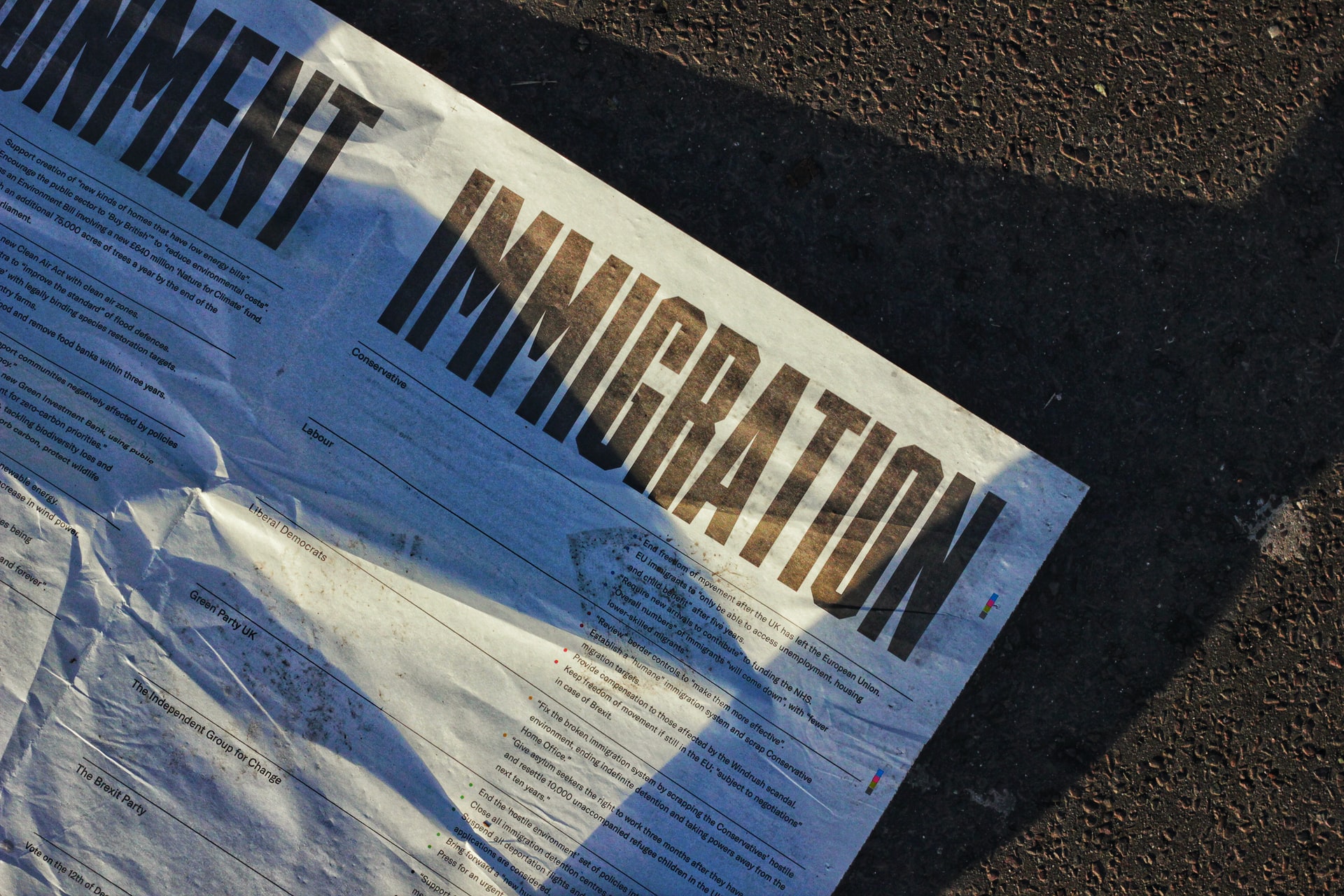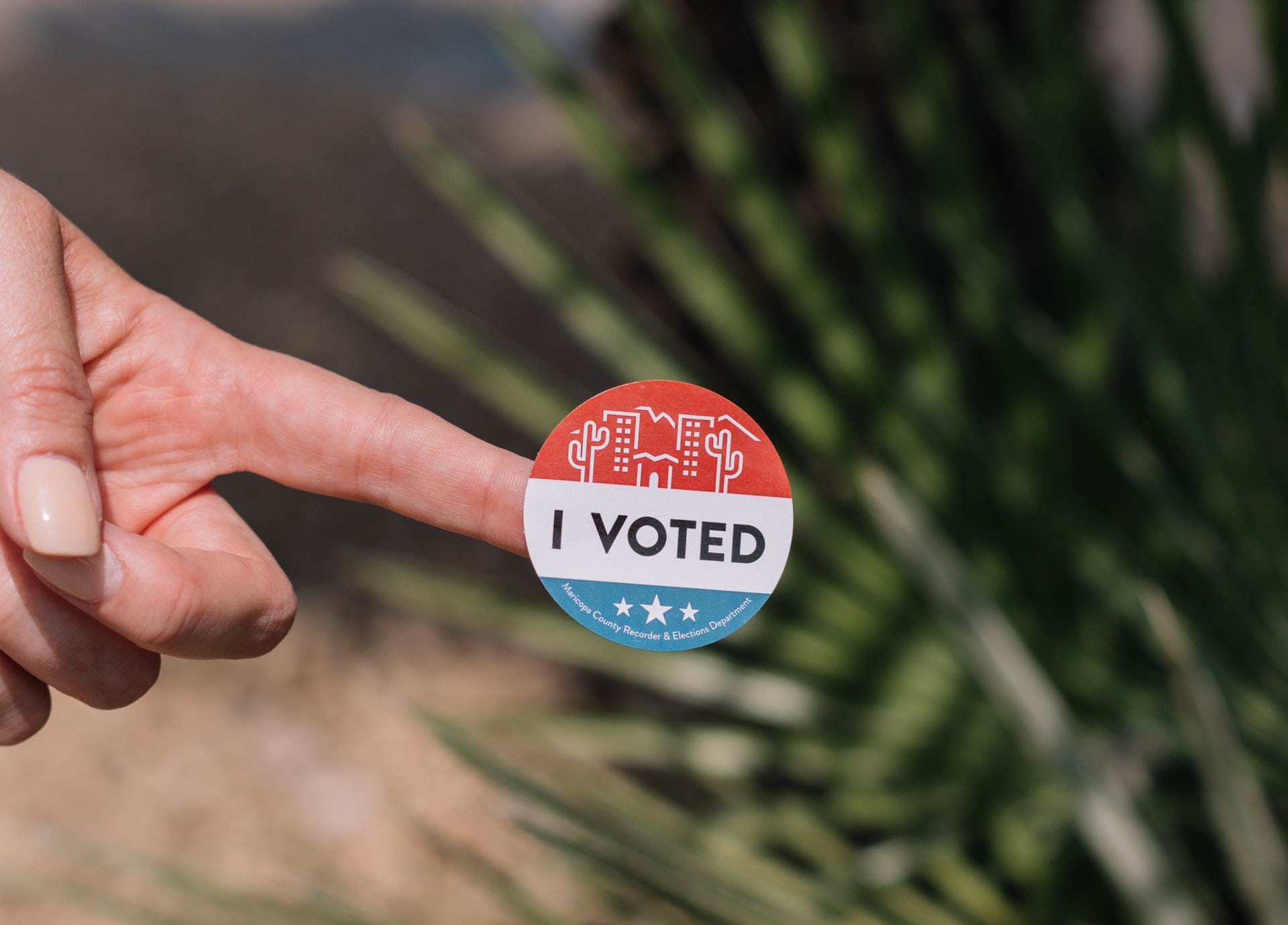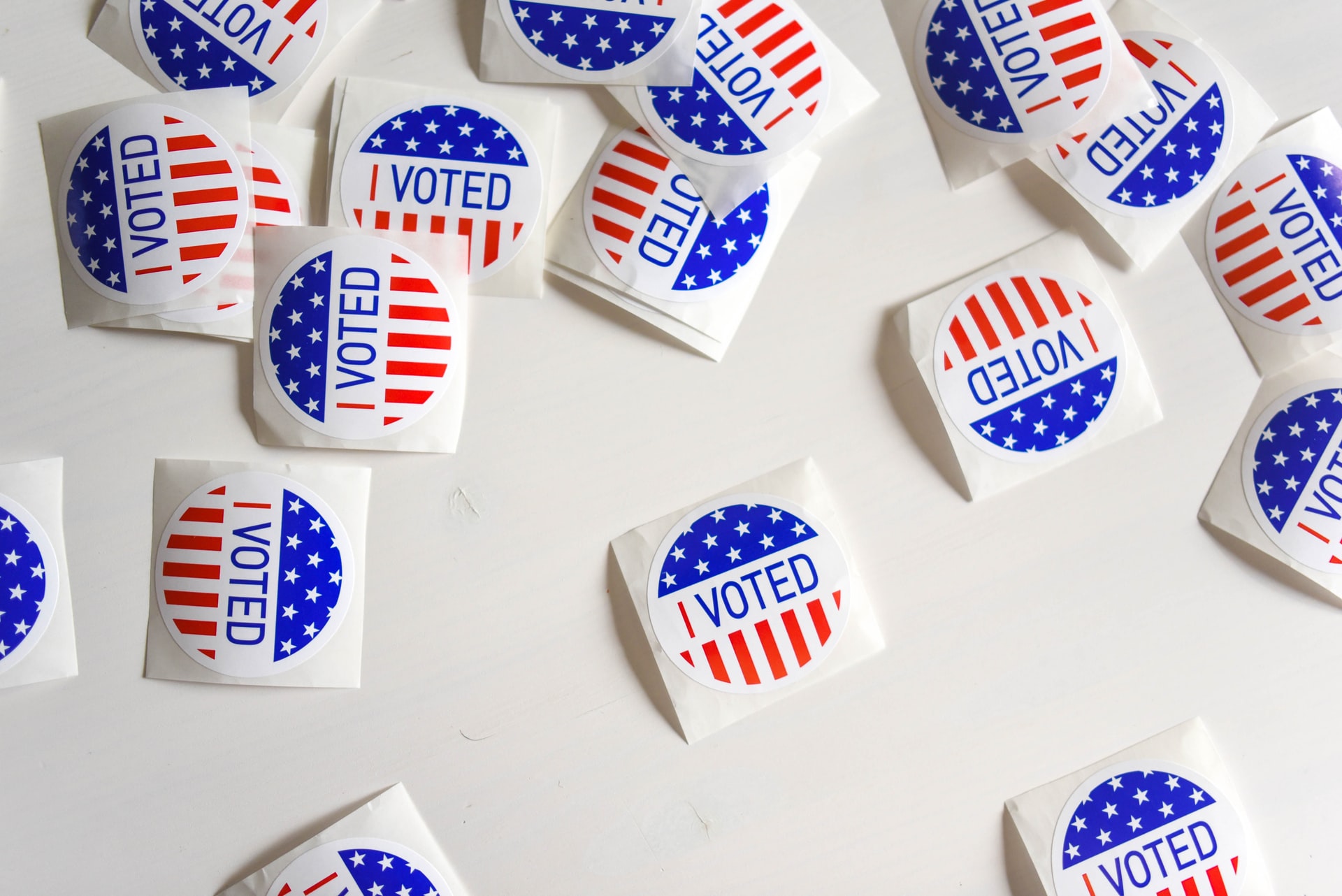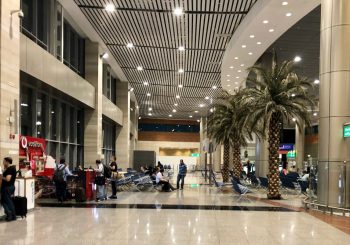“I worry that my vote will inadvertently lead to more hostility towards Egypt and the rest of the Middle East. Do I want to guarantee a safer future for my daughter here in the US, or do I want to maintain the status quo for my family and loved ones back home?”
With identities strewn across the Atlantic, a young Egyptian American father sends their U.S. presidential election’s vote early in the mail. Another votes online through email in Cairo. A 20-something in a town deep in Indiana mails in their ballot. In Washington D.C, a dual citizen questions her decision to vote but does it anyway. Back in Egypt, one feels like their American passport is nothing more than an indicator of where they were born, a paper that eases their travel, feeling no connection to the country in their identity, deciding not to vote. All of them knowing the election may end up impacting their life and others’, regardless of their location or citizenship.
Some believe those who have lived in the U.S. within the last 4 years with the current Trump presidency have arguably experienced a different unique experience of being an Egyptian American living in the U.S. Others argue that Donald Trump’s policies did not vastly differ from previous presidents, and that the only difference was in the way in which his policies were dispersed.
Aya Hamid is a 22-year-old Washington D.C. resident who has lived in the U.S. for most of her life, and in Egypt for 3 years. She shares her experience of the last 4 years as an Egyptian American.
“Donald Trump and his current administration are not really different from any other presidency that I’ve experienced. The only difference is Donald Trump is blunt in his racism whereas the others are not. The Democratic Party is also (in addition to the Republican party) pretty racist and problematic so there was never a difference,” Hamid told Egyptian Streets.
Others agreed that their experience didn’t change, but it was because their Egyptian American identity was not even correctly perceived by others in the frame of the presidency.
To the west of Hamid in the state of Indiana is where 23-year old dual citizen Reem Aly spends a portion of her time, while going to university in Egypt.
“It’s not that different, in Indiana they think I’m Latina anyway. Deep red states have been in your face about how racist they are long before Trump came along,” Aly told Egyptian Streets.
Voting as an Egyptian
Aly moved to Egypt during college, which opened her up to a different perspective of criticism of the American democratic system from Egyptians who wished they didn’t have to live in Egypt.
“They (some Egyptians) say that even with Trump, there are still far more opportunities in the United States than in Egypt. Some people will approach what’s going on with a sense of humor, some will openly praise him and some will just start swearing. It’s a mixed bag,” Aly said.

21-year-old Nour Ibrahim has had a different reflection on the situation, being born and raised in New Jersey, but having lived in Egypt since she was 7 years old.
“It’s (the current situation) made me feel kind of relieved I’m not living there (in the U.S.), to be honest. I think the only effect it has on me here is that it’s just depressing to watch. But I’m more focused on what’s going on in Egypt. It’s easy to learn about how the U.S. is just tumbling into chaos ever since Trump was elected. It’s always on the news. I’ve lived here so long, it doesn’t affect me personally anymore,” Ibrahim said.
She added that any grievances she has towards the U.S. come more from how it negatively impacts the rest of the world, including through war and environmental issues, rather than how it’s affected her as a citizen.
The United States is one of the most influential countries worldwide, according to US News and World Report, the United States ranked as the number 1 most powerful country in the world. It was labelled “the world’s most dominant economic and military power” with its “cultural imprint which spans the world” thanks to its production of movies, TV, and music.
Lesser of 2 Evils
Hamid shared similar sentiments regarding how she considered who she is voting for from her own point of view.
“Both of them are horrible in their own way but one helps the United States much more. They are both equally as bad in foreign policy and I think when you are an Egyptian American you’re not only thinking of America but you think of Egypt as well and how it could be affected by the United States,” Hamid said.
The Egyptian Americans who spoke to Egyptian Streets felt strong disappointment about the choices that they’ve been offered to choose between in the 2020 presidential election.
“I was very much behind more left-leaning candidates because I think the only real way to get America back on track both globally and nationally is more drastic changes. However, the Democratic Party refuses to leave the centrist line and offer any significant change by pushing forward the most basic and boring candidate they have to offer under the guise that the goal is to just “beat Trump” without offering anything for people to get excited to vote for,” said 22-year old Indiana resident Hussien Mohamed.
The way Mohamed sees it is that he has to vote for the lesser of 2 evils; Biden, because the choice is between “someone who actively wants the worst for you” and “someone you might be able to convince to get your positions forward.”
The incidents that stick out most to these dual citizens include the ICE raids that targetted migrant families around summer of 2019 as well as the executive order of the Muslim ban which was one of Trump’s biggest promises after his 2016 election.
“This would jeopardize anyone who doesn’t have citizenship, or even those who do and are just targeted by his support for white supremacism and that’s extremely harmful,” said 21-year old dual citizen Aamenah ElSherif, who now lives in Canada.
She adds that Biden is just what she has to settle for, and while to her he isn’t racist and believes in science, he’s still a Zionist and she believes he will probably not have much of a foreign policy difference.
“This should not be how elections feel like but here we are,” Mohamed added.

Newly Minted Voters
34-year-old Ali Nasser was not yet an American citizen when Trump came into power as he’s an Egyptian who only became an American citizen earlier this year.
Nasser, who is voting for the first time as an American citizen, is also not ecstatic about the options, and wishes there was a different option other than Biden that he would be excited to vote for.
“There is so much more to being a president than just decency and the sanctity of the office – but nobody cares, because the endgame for most voters is getting Trump out of the office and whoever takes his place is irrelevant,” Nasser added.
According to The Washington Post, Biden’s track record with foreign policy is not promising, although he backed what were “arguably the most successful U.S. military interventions of the past 30 years.” The argument continues, though, on whether any of the U.S.’s military interventions are even necessary.
Nasser feels a tug of emotions, with a candidate whose foreign policy will impact his home country and region, and another who he thinks may cause irrevocable damage to the social fabric of the United States.
“I worry about the kind of future my baby daughter will grow up in if we continue living in a country that gets increasingly racist towards minorities like us. The option for me in this election becomes – do I want to guarantee a safer future for my daughter here in the US, or do I want to maintain the status quo for my family and loved ones back home?” Nasser asks.
Family for Trump
Rose Mikhail is a 24-year old dual citizen born and raised in Minnesota. She feels as though people’s true colors have shown in the past 4 years because many people will not stand against white supremacy, racism, or islamophobia.
“I’m half Egyptian, and members of my “white” side of the family have been very outspoken about anti-immigrant rhetoric since Trump’s election and voted for him because of it. Which, as the daughter of an Egyptian immigrant, that is problematic to say the least,” Mikhail told Egyptian Streets.
Trump did not sway people to be prejudiced, Mikhail says, he has rather given them a voice and made prejudice “okay” again.
Egyptians for Trump
“I know a lot of Arab Americans who voted for Trump back in 2016 because Hilary Clinton’s foreign policy towards the Middle East was so aggressive. It feels like a trolley problem. Voting for Trump is worse for me but voting democrat might be handing down a death sentence to most of my family,” Aly told Egyptian Streets, agreeing with Nasser’s earlier sentiments.
She shared that the community center near her in Fishers, Indiana is an example of those very conservative communities. “To them, Trump feels like a very familiar sort of figure to have in power. They become the “I immigrated the right way” sort of people,” she said.
Despite not personally knowing anyone who was open about voting for Trump, fellow Indiana resident Mohamed agreed with Aly.
“There are definitely immigrants who either don’t feel like the issues affect them because they separate themselves from the country, or people who probably agree with him on a lot of stuff except the foreign policy..Honestly any Arab or Muslim who thinks they can skirt under conservative ideals and play to the right is just playing themselves because no matter what you do they don’t really like you and don’t want you in this country either,” Mohamed stated.

Foreign Policy; Does it Matter Which Candidate?
There are major aspects in both candidates that most Egyptian Americans agree will continue regardless of who gets elected, those include the drone strikes initiated by the U.S.
“It seems like the discourse of what’s okay foreign policy in the Middle East has shifted so far to conservative right-wing thinking and violence even among democrats, which is disgusting and I blame the republicans for,” Mohamed said.
He adds, though, that it’s important to remember that the candidates are not equally the same.
“Trump is basically a fascist and is the biggest misinformant of the coronavirus in the world. His decisions have led to 200,000 deaths in the country and God knows how many worldwide,” he added.
To Nasser, the major issues in the U.S. still persist and neither candidate is willing to address or find a solution on how to deal with them.
“The US healthcare system is a travesty, income inequality and the wealth gap seems to be widening, and racial discrimination is on the rise,” he said.
American politics has devolved in a way where both parties are less interested in collaborating and bipartisanship to help solve major issues, Nasser adds, and more interested in gaining more influence and seats in the Senate and the House.
The New York-based dual citizen had gone been in limbo in regards to his residency status prior to getting American citizenship, and this election will be his first where he can vote as an American.
“I felt that my resident status was always at risk. Even though I came to the U.S. legally, there were many times where I felt I was unwelcome by the current administration. The measures adopted by Trump with regards to curbing immigration, ICE raids, and the Muslim ban always put me on edge,” Nasser told Egyptian Streets.
Although Nasser had no real legal reason to worry, he always felt a sense of dread that ICE might arrest him for not carrying his green card with him at all times and that they would deport him back to Egypt.
“I’ve seen some of my Egyptian immigrant friends contending with many unfavorable and restrictive circumstances with regards to renewing their H1B or O1 work visas. I don’t remember my H1B visa application being as nightmarish when I did it during the Obama administration,” Nasser added.
On the other end of the spectrum, New York-born law school student Hussein Mohamed has lived his entire life in the U.S. and while he occasionally visits Egypt, he now lives in Indiana.
Mohamed feels similarly to many others that the Trump Administration did not birth certain issues, it only allowed them to come public.
“The United States has always been courting facism and the far right even before Trump. However, the past 4 years have been a culmination of a lot of old problems and the start of a lot of new ones…From the Muslim ban, to the wall, to ICE, to his support of white nationalist and far right groups, it feels like someone is trying to flush you out of your own country,” Mohamed told Egyptian Streets.
He added that he thinks it’s unlikely these problems will be fixed under a Joe Biden presidency but “there is definitely a cliff we are going off of if we re-elect Trump.”

Getting to the Ballots
Nasser has already voted by mail, but he often wonders why even participate in the “charade” when the candidate he votes for will arguably ultimately have no power or influence in enacting change or making a real difference in addressing the major issues that affect America and the world.
“If that’s how I feel as a newly-minted American citizen, is it any wonder that Americans feel so disenfranchised and voter turnouts have been so low in the past few years?” he asks.
Cairo resident Ibrahim voted over email through a fairly easy process.
“My vote was received, but whether it counts as valid or not is still up in the air. I’m aware they’re ready to throw out ballots over anything, like the inconsistency in signature,” she said.
However, for those who haven’t spent as much time in the U.S., to vote or not to vote has been a dilemma of sorts.
19-year old Mona Youssef* did consider voting and looked up the procedures a few times, but the instructions were confusing which, along with having spent her entire life and foreseeable future in Egypt, led her to give up on voting entirely.
“Part of me feels that I’m 1 vote that won’t matter,” Youssef said.
While Youssef has just as much of an American passport as any other American citizen, she was only born in the U.S., and has never lived in or seen the country herself. Her experience in relation to her citizenship has been vastly different to someone who has lived their entire life in the U.S.
Youssef also had a unique obstacle to voting, her dad’s opposition to an American identity.
“He doesn’t want me to identify as American and act like an American. He doesn’t even want me to have the passport so I don’t think he would want me to vote..I also think my lack of experience with democracy has disconnected me with the American democratic experience,” Youssef added.
With the U.S. Election Day coming up on 3 November, Egyptian Americans worldwide have an important decision to make – to vote or not to vote, with all of the implications and anxieties of that decision. The general consensus is that the options available to these citizens do not offer enough range, but those with any link to America are adamant in making their voices heard regardless.
*Name has been changed for privacy purposes.






Comment (1)
[…] Read from source Egyptian Streets […]